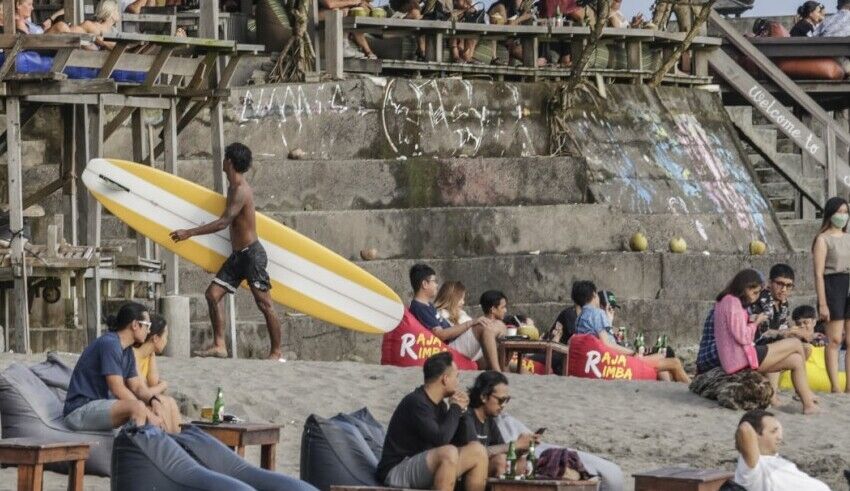
After visitors were discovered working illegally, authorities on the popular tourist island of Bali in Indonesia asked the central immigration bureau to revoke the visa-on-arrival scheme for Russian and Ukrainian nationals.
According to official tourist data, Russian citizens are one of the largest groups of foreign visitors to Indonesia. Last month, at least four Russian nationals were deported for visa infractions, and immigration authorities in Bali have regularly warned foreigners about working on tourist visas.
Due to a number of infractions, I Wayan Koster, the governor of Bali, announced on Sunday that he had asked the Ministry of Law and Human Rights to tighten visa requirements by eliminating the visa-on-arrival option for Russian and Ukrainian people.
“Since they are at war, people have flocked to Bali, including those who sought solace or came to work here,” he added, according to an Instagram post from the immigration bureau. He stated that these two nations were singled out because the violations committed by their citizens were more “serious” than those of other nations.
He did not elaborate on the infractions.
Keep Reading
The move comes as Indonesians turn to social media to complain about the activities of certain Russian tourists in Bali, including a model who posed nude near a sacred tree and a man who allegedly struck a pedestrian while driving under the influence.
The immigration agency of Indonesia, which falls under the law ministry, declined to comment.
The Russian and Ukrainian embassies in Jakarta did not reply quickly to a request for comment.
Indonesia permits nationals of certain nations to apply for a visa upon arrival, while others must apply before to departure.
More over 77,500 Russians landed in the Southeast Asian nation between September 2022 and January 2023 when COVID-19 restrictions were loosened, compared to around 88,000 during the same time frame just prior to the epidemic.
Between September 2022 and January 2023, about 8,800 Ukrainian tourists arrived.
Bali, renowned for its beaches, temples, waterfalls, and nightlife, attracted 6,2 million foreign visitors in 2019, the year preceding the outbreak.




